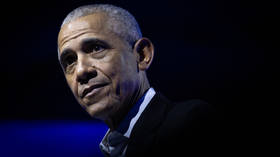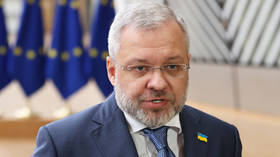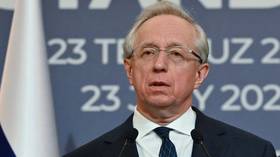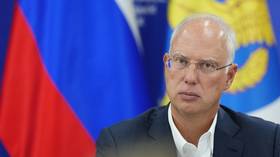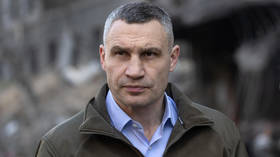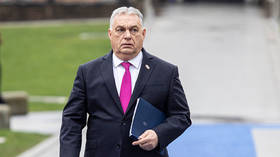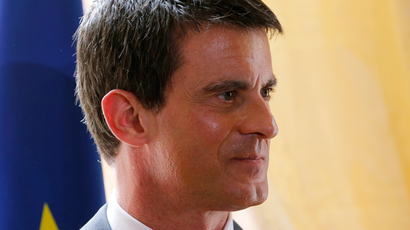Security giant G4S implicated in people smuggling ring at Vienna airport
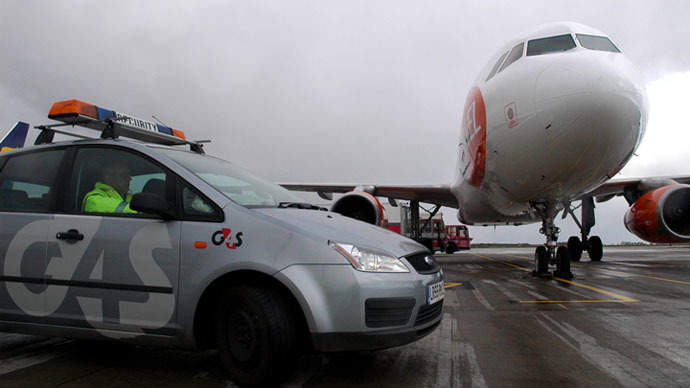
An employee of the world’s largest security firm, G4S, is among 13 security staff charged with organizing a human trafficking gang at Vienna International Airport.
“I can confirm that in compliance with Austrian labour law, an employee responsible for checking visa documentation at Vienna airport on a contract with Austrian Airlines was dismissed in March following his arrest. A trial is ongoing and we are unable to comment further,” said a statement from Graham Levinsohn, the CEO of the European division of G4S, which had revenues in excess of $10 billion last year.
Lower Austria’s state prosecutor spokesman Friedrich Kohl said that the gang, which consisted of Austrian, Sri Lankan and Polish citizens, had helped illegal immigrants to board at least 11 flights between the autumn of last year and February 2015.
For fees of €7,000 ($7,600) to €9,000 ($9,780) the traffickers paid their friends to pass border security and hand over tickets to refugees, who would already be inside the airport. The security staff also worked on the last passport check before boarding, located outside the gates, where they would allow the migrants to access flights they were not sanctioned to.
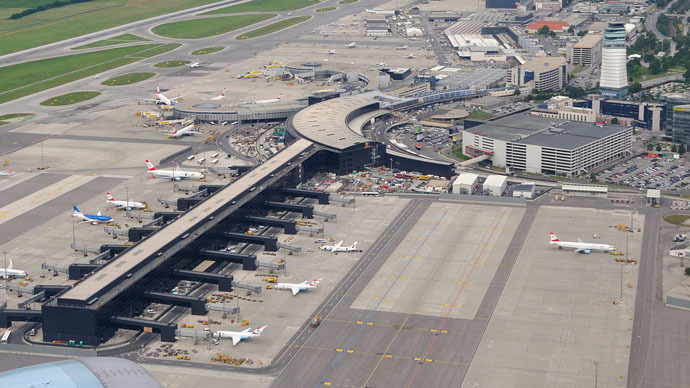
At the same time, the border personnel at Vienna International Airport, which was used as a layover, did not have a chance to witness any illegal activity first hand.
“All the people crossing security checks had a valid boarding pass. It is obvious that the travel documents and personal documents were exchanged after the security check. But the fact is that all individuals passed through the airport security checkpoints and therefore were able to reach dangerous objects and other things on board,” said airport spokesperson Peter Kleeman, who acknowledged that the vulnerabilities could have been exploited by potential terrorists.
READ MORE: French PM rejects EU refugee quota initiative
While the exact details of the scheme remain uncertain, it fits in with stories of refugees, who have used traffickers to enter Europe, and subsequently spoken to the media. Frequently, illegal migrants board a flight legally, only to change over to another destination at a stopover, in a process that may be repeated several times to cover their trails. Once they arrive at a desired location, they demand asylum as refugees, often making it impossible to deport them.
Numerous newspaper exposes in the past half-decade have demonstrated entire networks of bought-off employees, who not only allow immigrants to slip through the security checks, but sometimes equip them with false documents.
The Vienna group was uncovered from two different directions. One of the illegals was refused entry to New York, and the US managed to track his suspicious changeover to Vienna, causing police there to begin investigations. Then a member of the security staff recruited by the gang, reported it to the police.
Members of the group, whose names have not been revealed in accordance with Austrian law, face up to ten years behind bars.
“We have now tightened security, and placed a second person on the gate security checks to reduce chances of such collusion,” said Kleeman.
Official statistics show that 600,000 people claimed asylum in Europe last year, with many coming from warzones such as Syria and Iraq, and others from economically disadvantaged locations in Africa and Asia.


